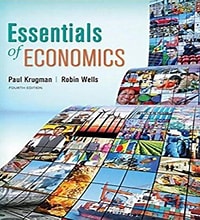
Essentials of Economics
Krugman, Paul; Wells, Robin
4th ed.
New York: Worth Publishers, Macmillan Learning, 2017
 |
Essentials of Economics Krugman, Paul; Wells, Robin 4th ed. New York: Worth Publishers, Macmillan Learning, 2017 |
4 termes
| Nash equilibrium n. (noncooperative equilibrium) |
|
| negative income tax n. |
|
| noncooperative equilibrium n. (Nash equilibrium) |
|
| non-means-tested program n. |
|